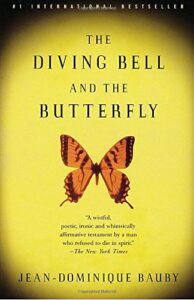Theo and the Forbidden Language was the winner in the Young Adult category of the 2018 IndieReader Discovery Awards, where undiscovered talent meets people with the power to make a difference.
Following find an interview with author Melanie Ansley.
What is the name of the book and when was it published?
The book is called Theo and the Forbidden Language and was published November 2014.
What’s the book’s first line?
“The two travelers had been cautious, avoiding any settlements.”
What’s the book about? Give us the “pitch”.
The elevator pitch is “Watership Down” meets “Lord of the Rings.” The longer pitch is: when a rabbit with the secret ability to read and write is exiled from his village, he must join an axe wielding bear to save his fellow animals from the human empire.
What inspired you to write the book? A particular person? An event?
What seems a lifetime ago, the character of a withdrawn and unassuming rabbit who loves to read popped into my head. He still hasn’t left.
What’s the most distinctive thing about the main character? Who-real or fictional-would you say the character reminds you of?
The most distinctive skill Theo has is his forbidden ability to read. In his world, reading is punishable by death, but he has to discover the power of the written word, and be true to himself, if he’s going to save those he loves. If I had to compare him to someone, it would be Willow from the 1988 Warwick Davis movie.
What’s the main reason someone should really read this book?
To be entertained. I always endeavor to write and produce stories with heart, with a message, but above all with entertainment value.
If they made your book into a movie, who would you like to see play the main character(s)?
Theo would need to be CGI, but I’d imagine him to have a voice like Charlie Heaton’s.
When did you first decide to become an author?
I don’t think it was a particular moment. It was more that it was becoming harder to ignore my desire to write. Once I finished a novel, it felt like something in my life that had always been off kilter had finally righted itself.
Is this the first you’ve written?
Theo and the Forbidden Language is my first novel. I also wrote a tie in novella, The Queen and the Dagger, which is a prequel for one of the lead characters in the first book.
What do you do for work when you’re not writing?
Right now I’m lucky enough to be a full time screenwriter, so when I’m not in Theo’s world I’m in TV land. It can sometimes be a mind bender to switch gears!
How much time do you generally spend on your writing?
Never enough. When I’m drafting, I make a daily word count, which helps me focus. When I’m revising, I schedule hour-long blocks of time.
What’s the best and the hardest part of being an indie?
The best part is that it’s all on you, you live and die by your work and you can’t be crucified for other people’s mistakes or lack of passion. The worst part is, it’s all on you. There’s no back up, no excuses to hide behind.
What’s a great piece of advice that you can share with fellow indie authors?
One of the great truths that someone bludgeoned me with a while back was that “no one cares whether you write or not.” While this sounds like a harsh statement, the person actually meant me to understand how freeing this is. Once I realized that I’m writing only because I want to, I was able to ignore my inner critic and self doubt, and just write freely.
Would you go traditional if a publisher came calling? If so, why?
I would absolutely go traditional if the right publisher came calling. I think you always benefit from a team, but it has to be the right team. I view it similarly to having a spouse: it’s better to be single than be in the wrong marriage.
Is there something in particular that motivates you (fame? fortune?)
I wouldn’t say no to fame and fortune (everything’s worth trying once!). But at the end of the day, self-fulfillment and knowing I’ve made something of quality are the two biggest drivers for me. Ultimately, I have to feel proud of what I’ve done.
Which writer, living or dead, do you most admire?
Jean-Dominique Bauby, for writing The Diving Bell and the Butterfly after a stroke left him with only one working eye and his brain. If he can write a novel, we all can.



